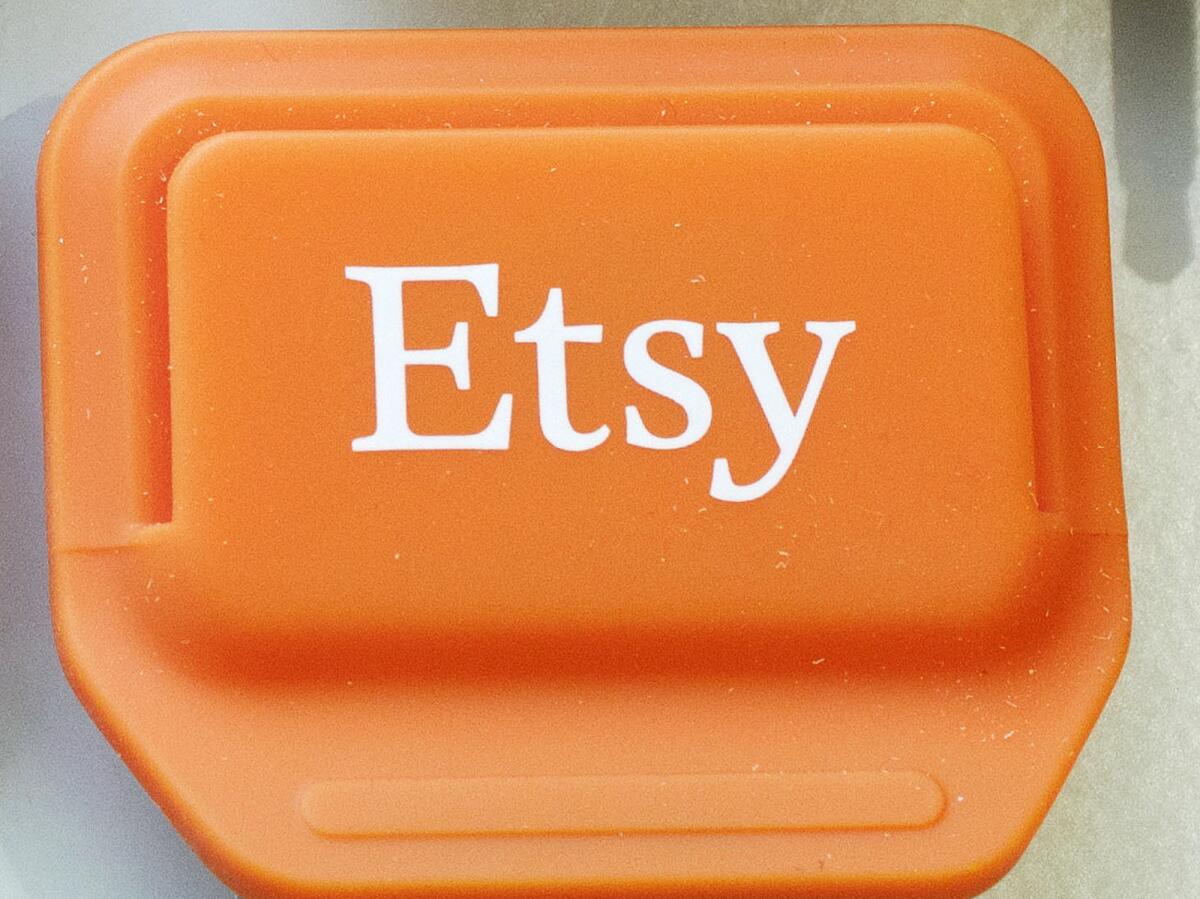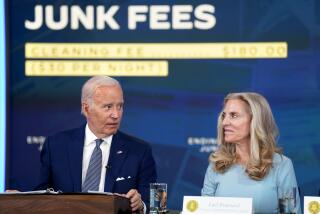Etsy sellers protest fees by halting their sales for a week

Some vendors on Etsy say they are halting sales of their items on the site for a week to protest a hike in the fees the crafts e-commerce marketplace charges them.
Starting Monday, Etsy sellers must pay a 6.5% commission on each transaction, up from the 5% in place since 2018.
A protest organizer, Kristi Cassidy, said thousands of Etsy sellers — a fraction of the 5.3 million vendors on the site — have temporarily halted selling their items.
Cassidy, who has been selling gothic and punk costumes on Etsy since 2007, also launched a petition on coworker.org that has garnered more than 50,000 signatures from buyers and sellers. Roughly 20,000 are sellers. Cassidy said it’s hard to determine the exact number of sellers that have stopped selling on the site.
The petition makes several demands, including that Etsy Chief Executive Josh Silverman roll back the fee increase.
Cassidy and others are also taking issue with Etsy’s advertising policy implemented early in 2020. It requires sellers who make at least $10,000 a year on Etsy and who have have their products advertised on Etsy’s offsite social media and search-engine partners to pay a 12% advertising fee on sales made through the ads.
In addition, Cassidy said, Etsy needs to crack down on resellers: People selling mass-produced goods that they have not designed themselves.
Raina Moskowitz, chief operating officer at New York-based Etsy, said that the new fee structure will enable the company to increase spending on marketing, customer support and removing listings that don’t meet its policies.
“Our sellers’ success is a top priority for Etsy,” she said in a statement.
Etsy, best known for selling handmade soap, jewelry and other items, was one of the few beneficiaries in the pandemic as more people stayed at home and either made items or sought homemade items online.
But it’s now under pressure to ramp up its offerings to compete better with Amazon. As part of its growth strategy, it made two acquisitions last year.
It bought Depop, an app that’s popular among young people looking to buy and sell used clothing and vintage fashions from the early 2000s. It also acquired Elo7 — known as the “Etsy of Brazil” for its popular marketplace for crafty creators.
Cassidy said the protest over fees is just the beginning. She said she wants to “build an equivalent of a union” for Etsy sellers and said she has been inspired by the union organizing activity heating up at such companies as Amazon and Starbucks.
“As individual crafters, makers and small businesspeople, we may be easy for a giant corporation like Etsy to take advantage of,” Cassidy wrote on the online petition. “But as an organized front of people, determined to use our diverse skills and boundless creativity to win ourselves a fairer deal, Etsy won’t have such an easy time shoving us around.”
The Rhode Island-based mother of two young children said she saw her income drop last year to one third of what it was in 2019, blaming in part some of the moves Etsy has made.
More to Read
Inside the business of entertainment
The Wide Shot brings you news, analysis and insights on everything from streaming wars to production — and what it all means for the future.
You may occasionally receive promotional content from the Los Angeles Times.










